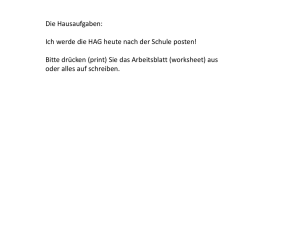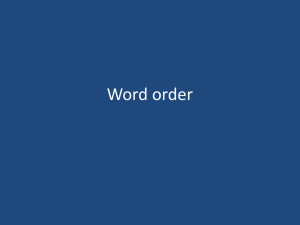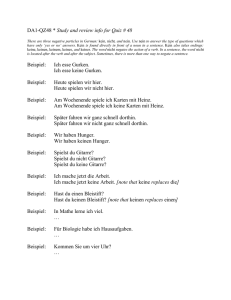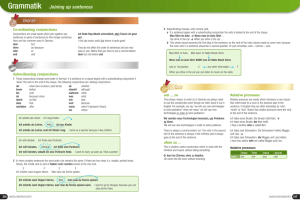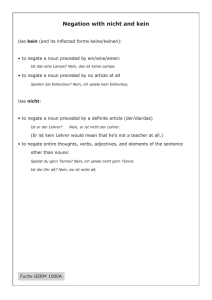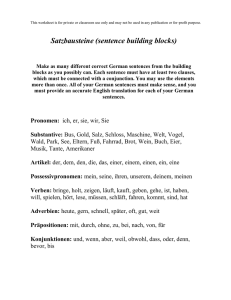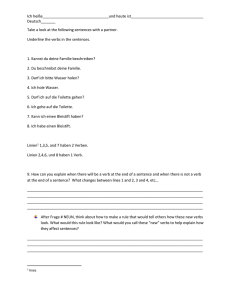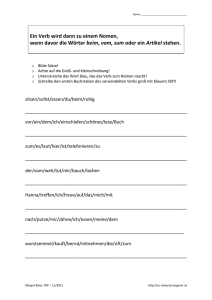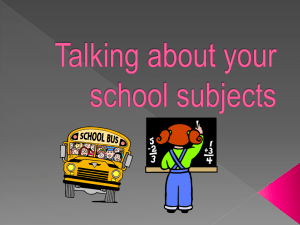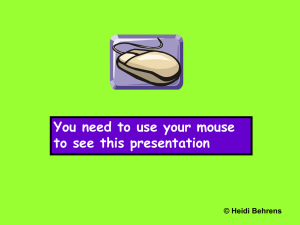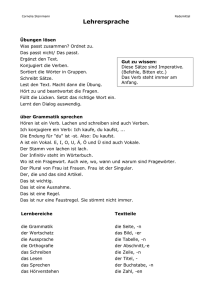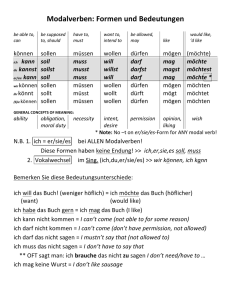Sentence Structure
Werbung
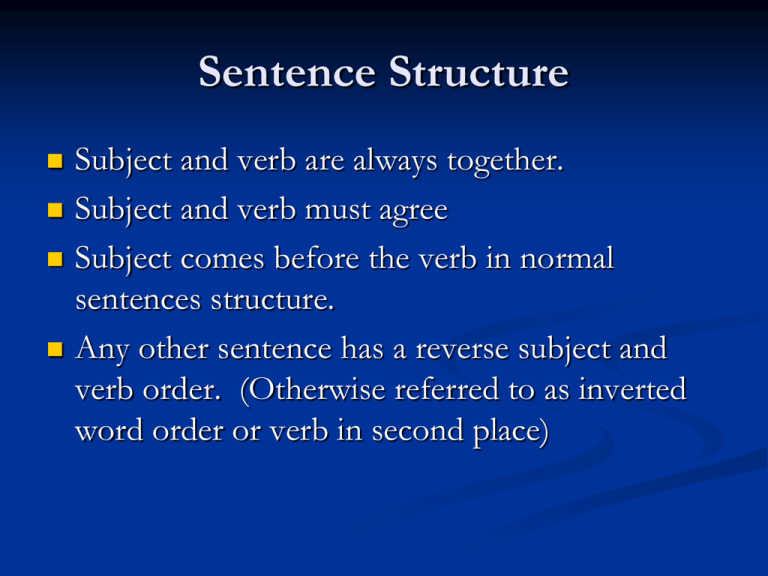
Sentence Structure Subject and verb are always together. Subject and verb must agree Subject comes before the verb in normal sentences structure. Any other sentence has a reverse subject and verb order. (Otherwise referred to as inverted word order or verb in second place) Regular Sentence Er geht. Subject Verb Ich finde die Schule prima. Subject Verb Du zeichnest das Subject Verb Bild. Def. Art. Direct Object ?????? Question Sentences ?????? (Reverse Structure) Findest du die Schule prima? Verb Subject Definite Object Article Helfen wir der Mutter? V. S. DA O. Interrogatives and Time Expression at the beginning of a sentence. Wie gehst du zur Schule. Interrog. verb sub. Preposition Heute gehe Ich nicht in die Arbeit. time verb sub. neg. preposition Unusual sentence structures at the beginning of a sentence. Original: Ich esse den Kuchen mit der Gabel nach der Arbeit. Nach der Arbeit esse ich den Kuchen mit der Gabel. Den Kuchen esse ich nach der Arbeit mit der Gabel. Mit der Gabel esse ich den Kuchen nach der Arbeit Esse ich den Kuchen nach der Arbeit mit der Gabel? Notice, the sentence may start with any part of a sentence structure as long as we observe inverted word order. We may not separate the verb and the subject unless it is in a subordinate or relative clause. Variation of Sentences The next set of sentences are variations in German however the same four basic sentence structures still applies to these sentences. Separable Sentences The (for the most part) preposition separates from the conjugated verb and moves to the end of the sentence Einladen: Meine Gastfamilie ladet mich immer noch ein. Ladet meine Gastfamilie mich immer noch ein? Ankommen: Ich komme im August in der Schweiz an. Wieso komme ich im August in der Schweiz an. Abholen: Wir holen die Kinder am Flugplatz ab. Heute holen wir die Kinder am Flugplatz ab. Some other sentences Modal Sentences: Action verb is at the end Ich kann den Hund holen. Kann ich den Hund holen? Den Hund kann ich holen. Conversational Past Tense: Past Participle at end Ich habe den Hund geholt. Den Hund habe ich geholt. Habe ich den Hund geholt? Future tense: Behaves like a Modal Sent. Ich werde den Hund holen. Den Hund werde ich holen. Werde ich den Hund holen? Conjunction (coordinating and subordinating) Sentences A sentence using subordinating conjunctions. Example: Ich gehe nicht ins Kino, weil ich kein Geld habe. Translation: I can’t go to the movies, because I have no money. A sentence using coordinating conjunctions. Example: Ich komme nicht, denn ich habe keine Zeit. I can’t come, because I have no time. Conjunctions Coordinating Denn Und Aber Oder Sondern and more ……. Subordinating Weil Wenn Dass Als Wo (not interrogative) and more …….. In Conclution You can make a statement into a question, simply by rearranging the subject and verb. Statement: Ich habe Hunger! Question: Habe ich Hunger? Sentences can start with something other than a subject. Heute spielen wir Volleyball. Wann spielen wir Volleyball. Unique to German – other sentence structures may come first also as long as the subject/verb order is observed. Volleyball spielen wir. In Conclusion All sentences that start with something other than the subject have the inverted word order regardless of what it is. The sentence structures portrait in this power point are the basic structures in German. Slight variations will happen however the basic structures will hold.
